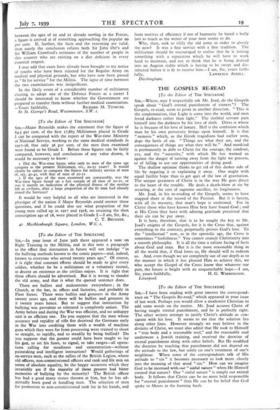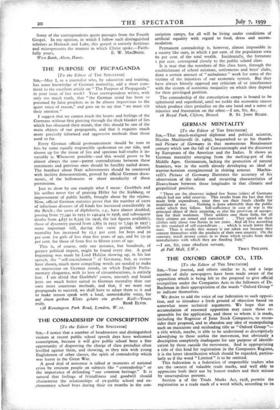[To the Editor of THE SPECTATOR] SIR,—I have been reading
with great interest the correspond- ence on "The Gospels Re-read," which appeared in your issue of last week. Perhaps you would allow a modernist Christian to add some words on the matter. Mr. Joad accuses Christ of having taught eternal punishment, and he is perfectly right. The other writers attempt to justify Christ's attitude as con- sistent with his love. It seems to me that the solution lies along other lines. However strongly we may believe in the divinity of Christ, we must also admit that He took to Himself a " true body and a reasonable soul," and the reasonable soul underwent a Jewish training, and received the doctrine of eternal punishment along with other beliefs. But He modified the doctrine by teaching that punishment did not depend on the attitude to the law, but solely on one's treatment of one's neighbour. When some of the correspondents talk of His attitude to " sin " it becomes necessary to look more closely into the meaning of that word " sin." How can we imagine God to he incensed with our " sinful nature " when He Himself created that nature? Our " sinful nature " is simply our animal body. It follows that Christ can be no more held responsible for "eternal punishment" than He can be for belief that God spoke to Moses in the burning bush.
Some of the correspondents quote passages from the Fourth Gospel. In my opinion, in which I follow such distinguished scholars as Harnack and Lake, this gospel is entirely fictitious and misrepresents the manner in which Christ spoke.—Faith-











































 Previous page
Previous page